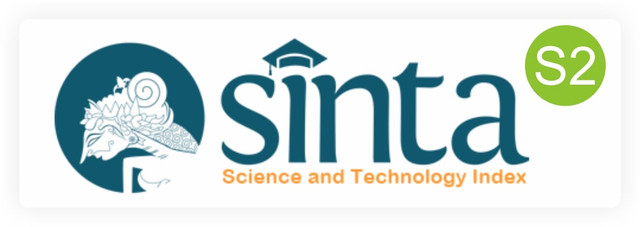UJI SITOTOKSISITAS DAN ANTIPROLIFERATIF FRAKSI ETIL ASETAT EKSTRAK ETANOL BIJI JINTEN HITAM (Nigella sativa, Lour) TERHADAP SEL MIELOMA
DOI:
https://doi.org/10.12928/pharmaciana.v1i2.520Keywords:
Cancer, Nigella sativa L., cytotoxicAbstract
Cancer is the formation of new tissue which is abnormal and malignant. A group of cells suddenly become disorganized and reduplicate themselves rigorously (hyperproliferation). Nigella sativa L. is one of the herbs which have an anticancer effect. This research aims to assess the cytotoxic and antiproliferative effect of Nigella sativa L. ethanol extract of Myeloma cells. Ethanolic extract was produced from Nigella sativa L. powder with maseration method. The cytotoxicity test was done by incubating Myeloma cells with the treatment concentration group of N. sativa L. ethyl acetic fraction of ethanolic extract 2000; 1000; 500; 250; and 62.5 µg/ml, respectively. The test was done with an MTT method and then with a calculation of its death percentage. The LC50 is calculated using a probit analysis method. The test was then continued with the antiproliferative test to assess the doubling time at treatment concentration 125; 62.5 µg/ml and cellular control at hours 24, 48, and 72. The results showed that Nigella sativa L. ethanolic extract had cytotoxic activity towards the Mieloma cells with an LC50 value 177.01 µg/ml. The antiproliferative test showed that there was a growth inhibition, even cell death at the extract treatments. The doubling time was 253 hours at 62.5 µg/ml concentration, 298.4 hours at 125 ug/ml, while the cell control had 54.52 hours
Downloads
Published
Issue
Section
License
Authors who publish with Pharmaciana agree to the following terms:
- Authors retain copyright and grant the journal the right of first publication with the work simultaneously licensed under a Creative Commons Attribution License (CC BY-SA 4.0) that allows others to share the work with an acknowledgment of the work's authorship and initial publication in this journal.
- Authors are able to enter into separate, additional contractual arrangements for the non-exclusive distribution of the journal's published version of the work (e.g., post it to an institutional repository or publish it in a book), with an acknowledgment of its initial publication in this journal.
- Authors are permitted and encouraged to post their work online (e.g., in institutional repositories or on their website) prior to and during the submission process, as it can lead to productive exchanges, as well as earlier and greater citation of published work.


1.png)











